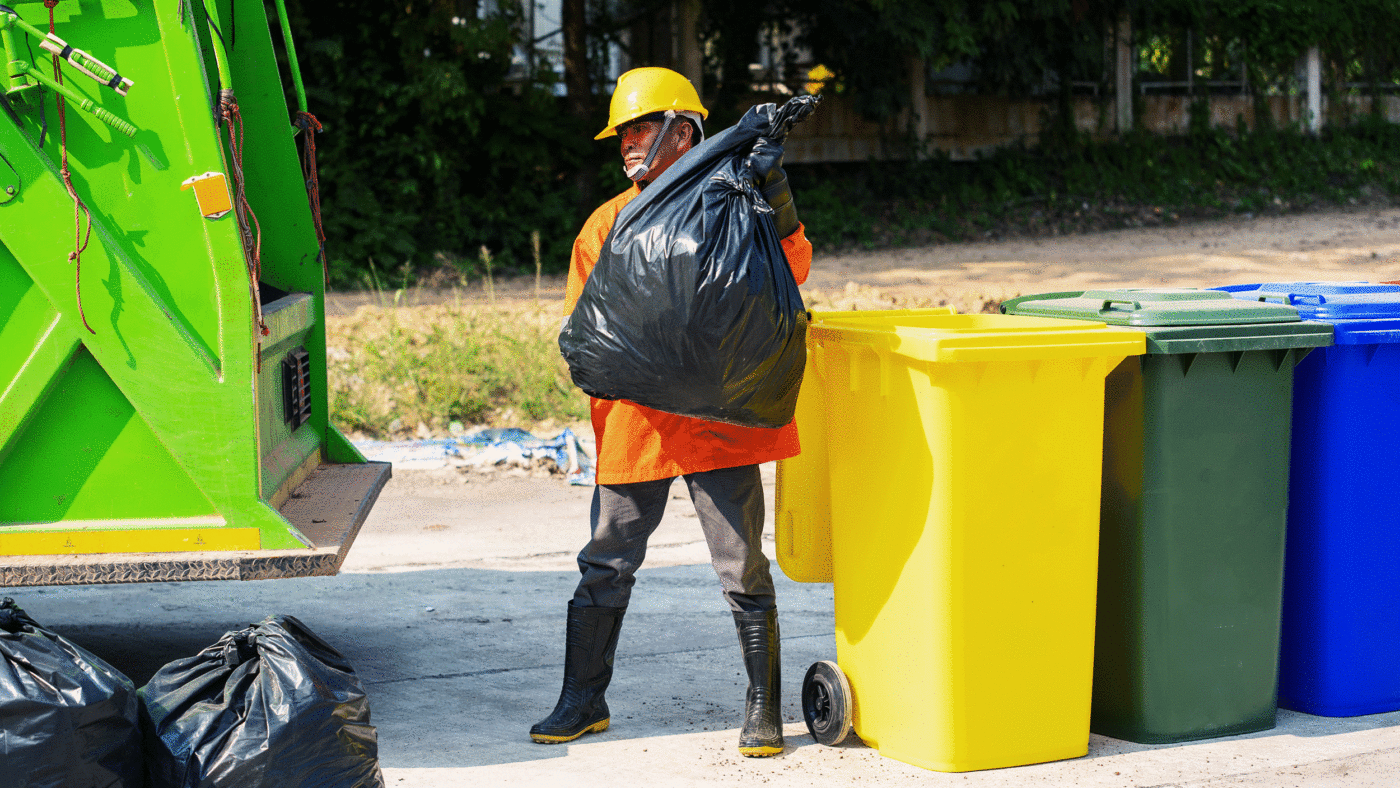My borough, Bexley, has been blighted by bin strikes this year. Plastic and packaging has been piled high because the Council cancelled contracts with Serco, causing 140 workers to walk out over low and delayed pay. New staff were recruited on contracts worth thousands more than their colleagues. The standoff has continued for over two months. Thankfully, the dismal weather this July and August meant the bins didn’t stink quite as badly as they would have in sweltering summer heat.
These strikes are a microcosm of larger systemic issues and cultural attitudes affecting how bin men are treated, and how rubbish is collected in Britain.
Prior to the pandemic, the UK produced 222.2 million tonnes of waste. The recycling rate for household waste was 46.2%, with biodegradable municipal waste sent to landfill falling by 800,000 tonnes between 2018 and 2019. Landfill decomposition constitutes 4% on the UK’s annual emissions, as of 2019 – that’s a 71% reduction since 1990. The waste disposal industry contributes to keeping our air and water clean as well as our streets and homes. Delays in collection can cause pollutants and unsanitary refuse to pile up quickly.
Collection delays and irregularities are made worse by other factors. Just when we thought we saw the back of the ping-demic: Lewisham has seen staff shortages caused by Covid-related absences. This has been accompanied by a shortage of heavy goods vehicle drivers – the Road Haulage Association estimates 100,000 more drivers are needed – which produced an exodus of bin men into better paid work as freight hauliers.
Though the shortage was blamed on Brexit, there’s no real evidence to suggest this problem is unique to Britain. Similar issues with supply and transport have impacted America too. When workers weren’t showing up to interviews because Biden’s stimulus checks paid better than service jobs, companies like McDonald’s starting paying applicants just to turn up to interviews. The UK’s solution (as I suggested) was similar: Supermarkets increased wages to attract talent.
It worked beautifully.
Since then, everyone from pilots, to bin men scouted while on rounds, have quit their jobs to haul essential goods across Europe. Who can blame our bin men for bailing for better pay and a less smelly lorry?
It’s all a lot less funny than when bin men in Brighton went on strike because the Green Party tried to scrap drivers’ bacon sandwiches, and it will take more than serving up sausage butties to improve working conditions this time round.
One way to break the monopoly on contracts and speed up redress fin pay disputes, would be to remove responsibility for rubbish collection from complacent councils. Continual council tax rises haven’t improved road surfaces, cracked down on anti-social behaviour, or kept streets swept and litter-free. Carbon emissions and waste build-up even worsen the likelihood of antisocial and criminal behaviour, and underlying health conditions, inciting a cycle of urban decay.
Paired with decreased council taxes, a subscription-service model for bin collection could reduce household costs, and improve rubbish collection regularity. Households could set their own collection rates. Lorries would be kept cleaner to act as in-action advertising by competing bin collection companies. Competing collection agencies would end bureaucratic complacency and drive up worker wages.
But beyond systemic changes, we each have a duty to reinstate an estranged sense of community by expressing our thanks to the lads in lorries. Our increasingly metropolitan cities and suburbs have atomised us from postmen, delivery drivers, and rubbish collectors. After the elevation of NHS to a state religion during ‘Clap for Carers’, we must rectify the disparity in appreciation for other frontline workers more directly. Our bin men aren’t to blame for Council incompetence; and their livelihoods are as much a casualty of the vice-grip of government incompetence over the industry as the cleanliness of our doorways and driveways.
Both staff and homeowners would be better served if bin collection were taken out of the hands of council bureaucracy, and subject to more market competition. To make bin collection cleaner and more reliable, we can start by each doing our bit to make the job more desirable. I’m not saying we need another Thursday night of banging pots and pans together. A simple ‘Thanks’ and a post-Christmas tip when you see your wheelie bins being collected will help pick up the slack in black sacks seeing landfill. Bin collection is already as dirty a job – it shouldn’t have to be poorly paid, and thankless too.
Click here to subscribe to our daily briefing – the best pieces from CapX and across the web.
CapX depends on the generosity of its readers. If you value what we do, please consider making a donation.


